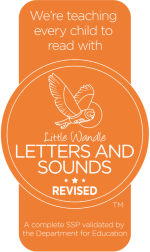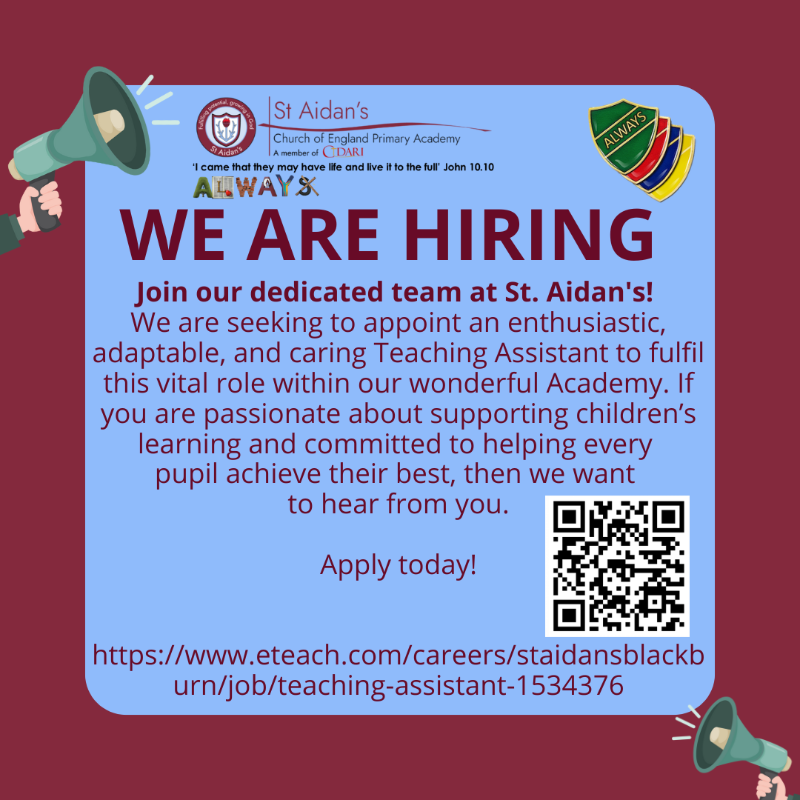
Safeguarding Policies

All St. Aidan's school staff are regularly trained and updated in safeguarding and child protection. All disclosures from children or concerns from adults are taken seriously, recorded and investigated thoroughly. We work with all relevant agencies to reduce risk and promote the welfare of children.
What is safeguarding?
Safeguarding is the action that is taken to promote the welfare of children and protect them from harm.
Safeguarding means:
- protecting children from abuse and maltreatment
- preventing harm to children’s health or development
- ensuring children grow up with the provision of safe and effective care
- taking action to enable all children and young people to have the best outcomes.
Child protection is part of the safeguarding process. It focuses on protecting individual children identified as suffering or likely to suffer significant harm. This includes child protection procedures which detail how to respond to concerns about a child.
Are you concerned that a child is being abused or neglected?
If you are concerned about a child and you feel they are being abused, neglected or at risk of abuse/neglect, then you should consider making a safeguarding child referral.
Who can I contact?
MASH (Multi-Agency Safeguarding Hub)
You can contact the MASH (Multi-Agency Safeguarding Hub) by clicking on the link below:
MASH (Multi-Agency Safeguarding Hub)
or phone:
- Monday to Friday from 9am to 5pm on 01254 666400
- in an out of hours emergency (evenings and weekends) on 01254 587547
Childline
Childline 0800 1111
Kooth
NSPCC

You can also report your concerns online:
NSPCC Website: www.nspcc.org.uk
Or by phone: 0800 800 5000
Young Minds
.png) https://www.youngminds.org.uk/
https://www.youngminds.org.uk/
Bee Yourself



Our school is part of Operation Encompass
Operation Encompass is a unique Police and Education early intervention safeguarding partnership which ensures that a child/ young person's school/ college is informed, prior to the start of the next school day, that there has been a domestic abuse, vulnerable child or missing incident to which the child or young person has been exposed, and which might then have an impact on them in school/ college the following day.
Children were recognised as victims of domestic abuse in their own right in the 2021 Domestic Abuse Act.
Operation Encompass means that the police will share information with our school about all police attended Domestic Abuse incidents which involve any of our children PRIOR to the start of the next school day. This information will be shared throughout the year, including holidays and weekends. Information will only be shared with the school/ college by the police where it is identified that a young person was present, witnessed or was involved.
Once a Key Adult (DSL) and their deputy/ies (DDSLs) have attended either an Operation Encompass briefing or completed the online Operation Encompass Key Adult training they will cascade the principles of Operation Encompass to all other school staff and Governors. All schools staff and Governors can undertake the online training.
A nominated member of staff, known as a Key Adult, has been trained to liaise with the police. The key adult is Mrs Harrison.
Our school will be able to use information that has been shared with them, in confidence, to ensure that the school makes provision for possible difficulties experienced by children or their families. The Key Adult will keep this information confidential and will only share it on a need-to-know basis, for instance, to teaching staff for the child or young person. It will not be shared with other school students. The Operation Encompass information is stored in line with all other confidential safeguarding and child protection information.
Should you require any further queries regarding this then please come and speak to either Mrs Harrison or Mrs Hargreaves.
Operation Encompass Documents

What is the Prevent strategy?
- The Prevent strategy is a government initiative designed to safeguard individuals from embracing terrorism or aligning with terrorist or extremist causes.
- This strategy encompasses all forms of terrorism and extremism, ranging from the extreme right wing and violent Islamist groups to other ideologies.
How does the Prevent strategy apply to schools?
- Starting in July 2015, schools and other organisations have been required to protect children from radicalisation and extremism.
- This means we must shield children from extremist and violent views, just as we protect them from any other danger.
- We provide a safe space for students to explore these complex topics in an age-appropriate way, empowering them to protect themselves.
How do we put this into action at St. Aidan's?
Many of our existing practices that nurture positive, well-adjusted individuals also align with the Prevent strategy. These include:
- A strong, consistent set of aims and values that guide our school.
- Emphasis on core values.
- Exploring diverse cultures and religions to promote understanding.
- Actively challenging prejudices and racist remarks.
- Developing critical thinking and a strong, positive sense of self.
- Promoting spiritual, moral, social, and cultural development, including British values like democracy.
We also take specific steps to shield children from radicalisation:
- Internet filters block access to extremist and terrorist material.
- Thorough vetting of visitors who work with our students.
Is it appropriate for my child, at such a young age, to learn about extremism?
The Prevent strategy isn't solely about discussing extremism, which may not be suitable for all ages. It's also about fostering values like tolerance and respect. That's our focus at St. Aidan's.
Rest assured, any discussions will be tailored to the age and maturity of the children involved.
Is extremism really a risk in our area?
Extremism comes in various forms, including political, religious, and misogynistic. Some types may pose a greater risk to our area than others.
We are committed to equipping children with the skills to resist all forms of extremist views, both now and in the future.
Questions or Concerns?
We encourage you to contact the school with any questions or concerns about the Prevent Strategy and how it affects your child.
Learn More
For detailed information about radicalisation, please see our safeguarding policy on our website. You'll also find resources explaining our approach to spiritual, moral, social, and cultural development, as well as British values.
Prevent Documents
Online Safety Tips for Parents: 6-10
Safety on the internet matters. Our fun, interactive, stop motion animated video has useful advice and tips for parents of 6-10s so that you can help them to stay safe online. From toddlers to teens, our four ‘E-safety tips for parents’ videos are age specific to help you keep up with e-safety as they grow up.
e-Safety Tips
Jigsaw: for 8 -10 year olds
This is an assembly from CEOPs Thinkuknow education programme that helps children to understand what constitutes personal information. The assembly enables children to understand that they need to be just as protective of their personal information online, as they are in the real world.
https://www.teachertube.com/videos/jigsaw-8-10s-147297
After playing Jigsaw, discuss what happened to Becky and how by taking some simple steps they can keep themselves safe online. Make sure your child knows:
- How to set their profile to private.
- They should only talk to people they know and trust in the real world.
- That you are there to support them.
- How to report anything that upsets them
.jpg)






What parents need to know about Snapchat
Important Documents for Parents and Carers- Social Media
https://www.nspcc.org.uk/keeping-children-safe/online-safety/

This page offers resources to help keep your child safe online. Explore links below to the Safer Internet website for expert advice, and discover guides on parental controls for time limits, content access, and privacy settings on Android and iPhone devices. Additionally, find information about popular apps and games your child might use.
Things change so fast online, it’s hard to keep up with what my child is doing.
It can be challenging to stay informed about your child's online world. Discover simple steps to strengthen your connection and ensure their digital safety by clicking the link above.
My child keeps asking to play a game, or download an app that I don’t know about. What can I do?
Take a proactive approach to app and game choices by researching them beforehand. Learn about their features, potential costs (like in-app purchases), and social interactions. Websites like Common Sense Media can provide valuable insights into age ratings and content suitability.
My child is asking for a new device, and I’m not sure if they’re ready for one.
Investing in a device for your child requires careful consideration. Ask yourself:
- What type of device is best suited?
- Why is this device necessary?
- Who will be using it?
- When will it be used?
- What content will be accessible?
By addressing these key questions, you can make an informed decision that prioritises your child's safety and wellbeing.
I’m not sure if the content my child is watching is a good influence on them, what can I do?
As soon as children start exploring the online world, they can be influenced by the content they encounter.
What does an influencer do and how can they affect children’s behaviour?
Influencers, often celebrities or online personalities, use their platform to impact the decisions and actions of their audience.
My child is keen to share content and make a change online. How can I help them achieve this safely?
Young people are using the power of the internet to raise awareness of important issues and drive social change.
Resources to guide you through the process of reporting harmful or inappropriate content on apps, games, or websites.
Find out more about specific issues
For more details on specific online safety concerns, explore these resources in the link above.
Does your child have a phone? Do you know who they are speaking to and what they are saying? This app may help you and is most certainly worth a look into.
https://kidslox.com/
Please speak to Mrs Hargreaves if you have any questions.
 Be Internet Legends is an online safety program for children aged 7-11 that teaches them how to be safe and confident online.
Be Internet Legends is an online safety program for children aged 7-11 that teaches them how to be safe and confident online.
Tips for parents to keep their children safe online.









Please see our Safeguarding page: https://staidansblackburn.co.uk/key-information/safeguarding for more information on Online Safety.
Digital Leaders: Champions of Technology
We're excited to introduce our amazing team of Digital Leaders! These pupils are superstars when it comes to technology and online safety. Their mission is to help everyone at our school learn how to use technology wisely and be responsible digital citizens.

What Our Digital Leaders Do
Our Digital Leaders play a vital role in our school community. They teach other students about staying safe online, helping them understand things like:
-
Keeping personal information private
-
Being kind and respectful to others online
-
Knowing what to do if they see something that makes them feel uncomfortable
They are a fantastic support system, ready to guide and assist their classmates and teachers in using technology both safely and effectively.
Promoting a Positive Digital Environment
Our Digital Leaders are passionate about creating a positive and safe online environment for everyone. By sharing their knowledge and skills, they empower their peers to make smart choices and use technology as a tool for learning, creativity, and connection.
.svg.png)
.png)

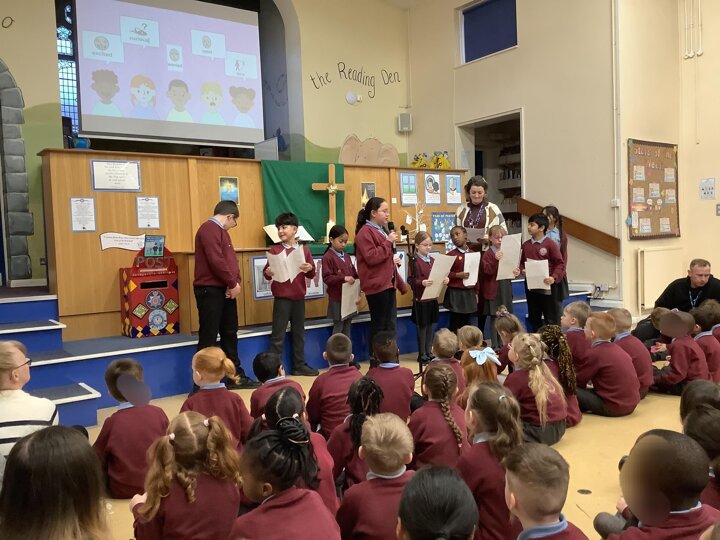
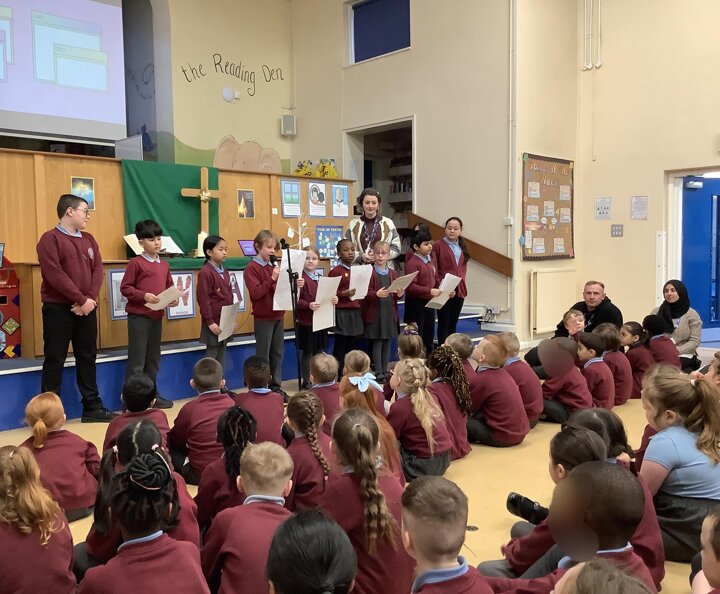
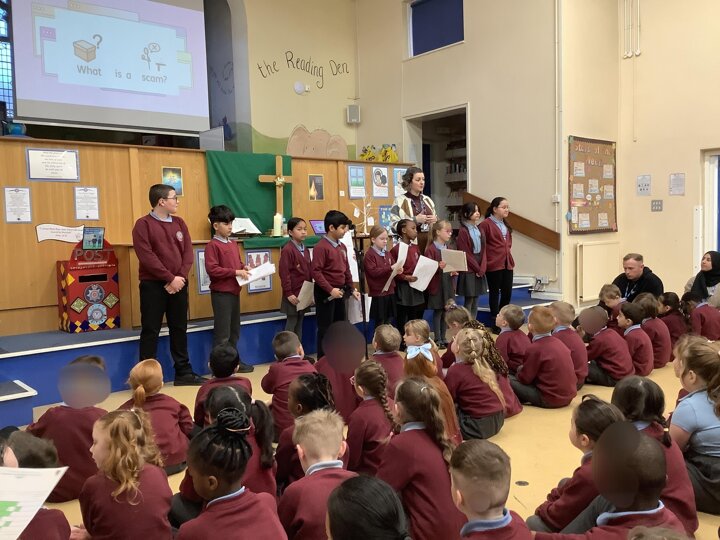
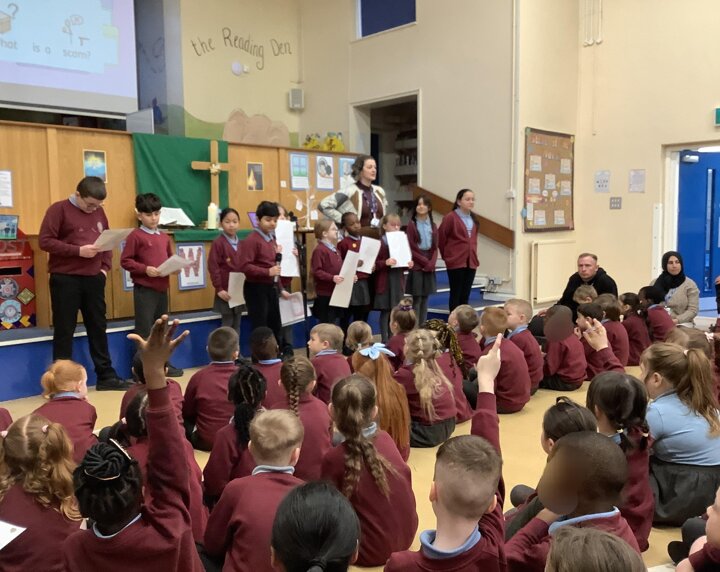
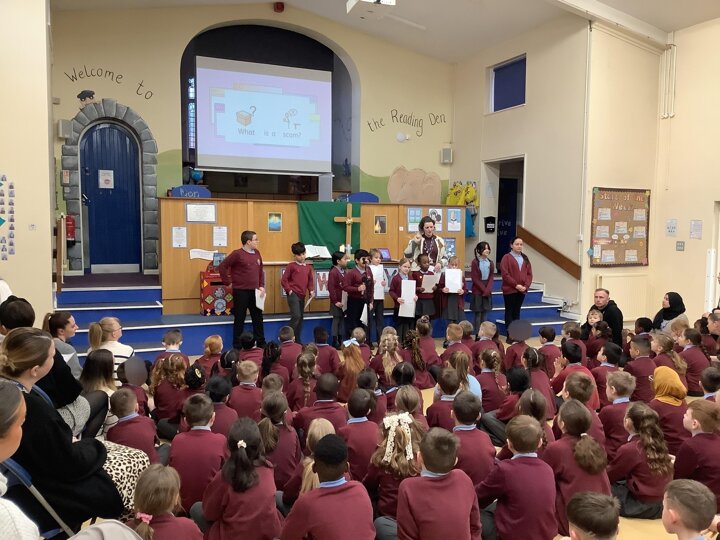
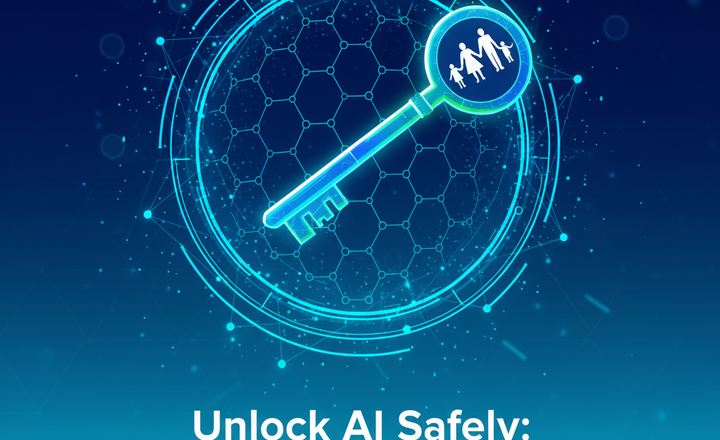
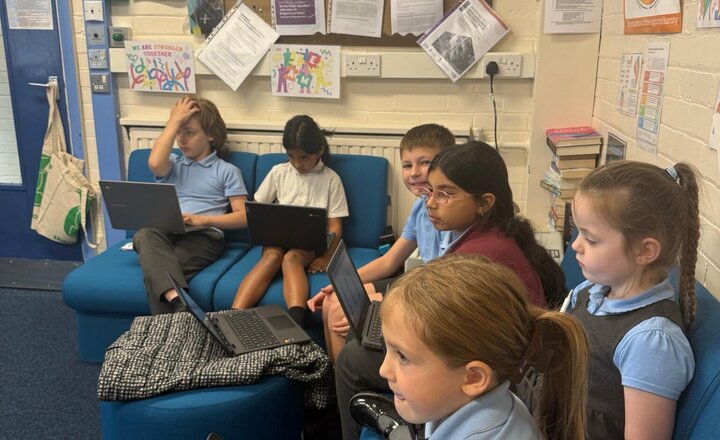

.png)
.png)
.png)


